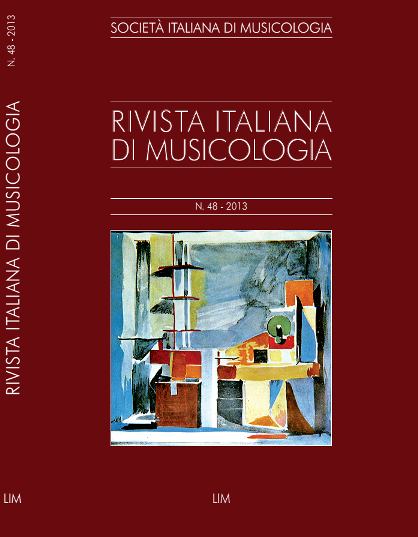Gli esordi della Scuola di Vienna in Italia fino alla seconda guerra mondiale
Abstract
This essay discusses some linguistic issues related to the use - often ambiguous and imprecise - of the terms dodecaphony (whose use is attested in Italy since the 1910s and in contexts that are extraneous to the compositional system introduced by Schönberg in 1923), atonality and pantonality. Consideration of terminological and conceptual ambiguities that attain to ‘dodecaphony’ leads to an inquiry about the School of Vienna and to the reconstruction of the historical and cultural contexts that accompanied the reception of this movement in Italy. Starting from the very beginning of the twentieth century, and until ca. 1945, we can identify three stages. The first, which continues until the 1920s, is characterized by an approach that is both open and inquisitive. This approach, however, also displays elements of bias and hostility toward Schönberg’s music. In the second stage - datable to the mid-1930s and marked by fascist cultural politics - is the music and figure of Alban Berg to be privileged among the exponents of the Wiener Schule. The third period, beginning with the aftermath of WWII, is characterized instead by a new reception of dodecaphonic music that was facilitated also by the reopening of the channels of communication with the Società Internazionale di Musica Contemporanea (these contacts had been interrupted in 1939). This essay also discusses the role and influence that several Italian composers or critics had in the diffusion, knowledge, and promotion (or, at the contrary, the refusal) of dodecaphony in Italy. Special attention is given to Luigi Dallapiccola, Alfredo Casella, Carlo Somigli, Gian Francesco Malipiero, Ildebrando Pizzetti.Published
10/24/2013
Issue
Section
Saggi


